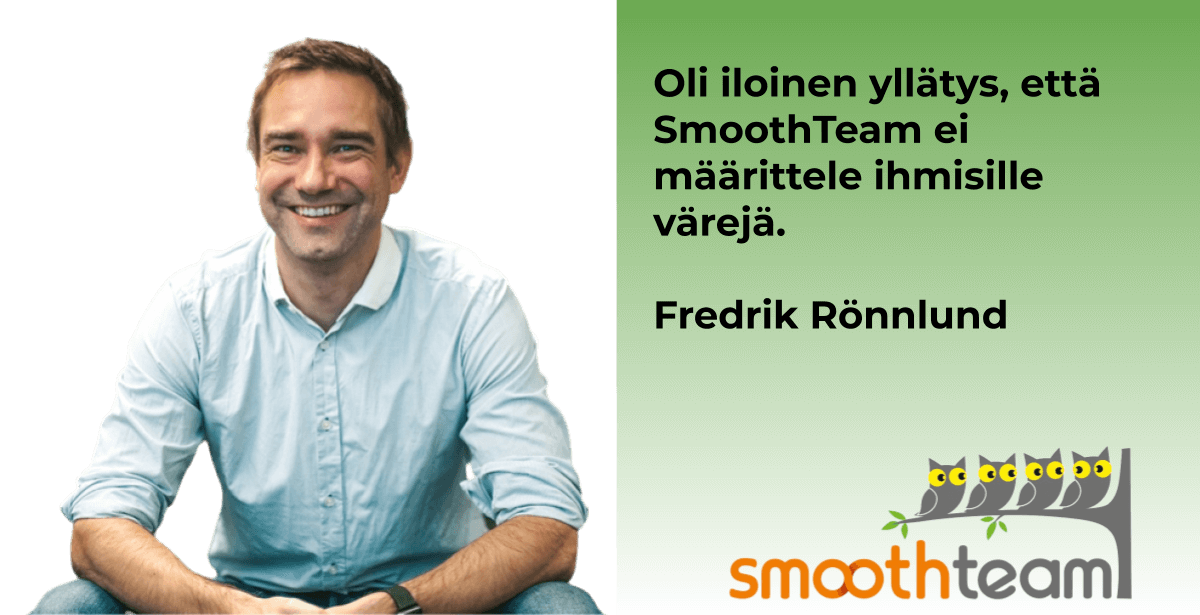Fredrik Rönnlund serves on the boards of several technology companies. He specialises in growth marketing, and participated in the SmoothTeam simulation as part of the board work of the Future Board Association of Young Board Professionals.
I'm sceptical about analysing people - but I liked SmoothTeam!
When I heard about the simulation, I assumed it was an MBTI-type psychoanalysis. I was therefore very sceptical as even Myers and Briggs themselves have said that the assessment was not originally intended to analyse workers, but that their work was misinterpreted after the fact. It was a pleasant surprise to me that SmoothTeam does not assign colours to people and make interpretations based on them.
SmoothTeam explored the positive aspects of people
What I liked about the simulation was that it was a way of role-playing a game, where we chose people from the team based on what we thought were their strengths. We judged what each other's strengths were in each case. The simulation did not try to create a certain type of persona for ourselves or others, but looked at different things in a positive light. At the same time, we challenged ourselves: when you had all positive qualities, how do you put them in order?
Getting to know others better
We were a fairly new team when we played the simulation. The most important thing was to get to know the others better. Another very interesting aspect is that I learned to understand how others see me - this information is often not available through any other means and does not come naturally in a conversation.
One observation from the simulation is that others saw me as an icebreaker person - or even a clown. This was not very surprising, and I can see myself as such. What was surprising, however, was that some people might see me primarily as a clown. This made me reflect on my own outlook.
Familiarity makes it easier to deal with difficult issues
People are afraid of confrontation, and you could say that the problems of companies are mainly people problems. When we know each other's strengths and styles, problems and issues become easier. Then we know how to approach our colleagues. SmoothTeam brought out my own strengths and I also got feedback from others about them. It gave me the motivation and willingness to raise issues. You have to work together and give feedback on an individual basis. Getting to know others is a basic premise for being able to challenge and give feedback boldly when necessary.
Often people try to correct their weaknesses instead of playing to their strengths. It is also important for a team to learn to play to their strengths, and this is achieved by knowing your strengths as well as those of others.
The best thing about the simulation was the playfulness
The simulation was playful and the situations we dealt with were not real. This allowed for free discussion and reflection on different hypothetical scenarios. In this way, one could think of the simulation as a kind of scenario planning of team activities.Such discussions bring us closer together as a team.
I can recommend SmoothTeam especially to management teams
I recommend the simulation to all management teams. Jorys interact a lot and this type of tool will help them to work more efficiently. I am sure that the simulation will also work well for corporate boards.
The simulation will help you get your team to work better together, you'll know yourself and you'll know the team.

Fredrik Rönnlund
Chairman of the Board, Leadoo
Marketing and growth expert on several boards


